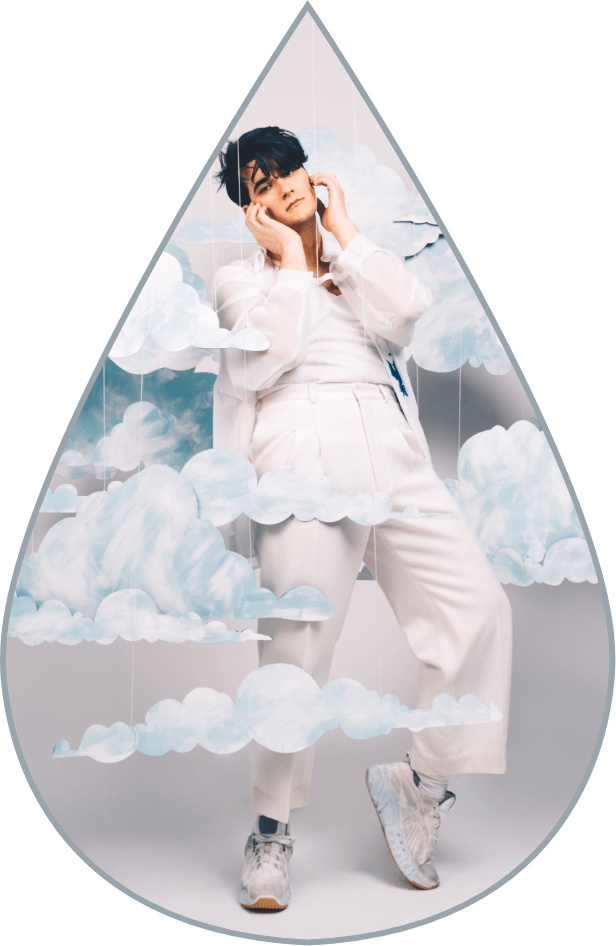
Gjon’s Tears will finally reveal himself. Reveal everything. It may seem strange to say such a thing. After all, since he was young, he’s been in the limelight in both France and Switzerland. He has released singles to his increasingly large fanbase. Not to mention, Tout l’univers (pun intended!) that he brought to the Eurovison song contest, (finishing third), and which has accumulated a massive 55 million streams already. And finally, one cannot forget Pure, his latest track, produced by Nicolas Rebscher (Alice Merton, Aurora…) and his very unique Bowie, Bjork The Cure-esque music video, (references to the latter can be spotted on the album cover as well). Nevertheless, the artistic space of an album allows him to finally reveal the breadth and depth of his musical galaxy, and the lightyears his talent can travel in a heartbeat.
Setting the scene from the outset, the young artist claims that “I wanted this album, The Game, to sound like a playlist”. The title is a reference to the cruel game that takes place between life and death. The outcome of the game is inevitable, yet we must play to find out who we really are.
Said “game” was what got him hooked on music. “When I attended my first talent competitions it was purely because it was entertaining. I was having fun. There were no social networks.”
Under his family’s influence, he began to experiment with different components of music.
It was at home with his family that he first began experimenting with music. From a young age, he started playing Baroque music and Bach. By age 12, he started singing opera. No doubt, it was during this time that he developed his exceptional timbre, somewhere between soprano and contralto (a rare register), which has bestowed him an astonishing aerial vocal range that allows him to strike a chord like few other artists; a unique asset that not only amazed but also somewhat shocked certain TV judges. During Gjon’s childhood, his father listened to traditional Kosovar music, which definitely left its mark on the budding artist. His mother played the dance hits of the time. And among these, Enigma’s Return to Innocence, whose mixture of techno and spirituality left a mark on him. With equal fervour, he plunged into the dreamlike world of the famous Irish singer Enya. Moreover, his grandfather encouraged him to listen to some of the classic great voices: Barbra Streisand, Céline Dion, Lara Fabian… It was this very grandfather who he brought to tears with his beautiful rendition of (Can’t Help) Falling in love, eponymous tears that live to this day in his pseudonym.
Finally, when the young Gjon heard the work of David Bowie, followed by Nina Hagen, Queen, Klaus Nomi, and finally Bjork, he began to incorporate both his own imagination and these eclectic references to help him define his own style. He even went further, pushing his insatiable curiosity even further, saying that “I listened to a lot of metal and rap, in order to understand what I didn’t like.”
The 24-year-old boy’s goal is laudable: to break down barriers, tear up labels and to pave his own way. Such an aim makes perfect sense, flowing on naturally from his upbringing, and rich pop heritage.